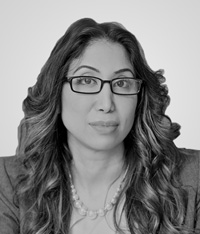Strategic Advocacy for Fraud Claims – Toronto Fraud Recovery Lawyers
Toronto Lawyers for Victims of Fraud
Loss from Deceit, Fraudulent Misrepresentation, Theft, Embezzlement or Misappropriation
Predatory Marriage Fraud | Dating and Relationship Fraud | Fraud on Family Member | Elder Fraud | Employee Fraud | Fraud on Not For Profits and Charities
Investment Fraud | Mortgage Fraud | Construction and Property Fraud | Computer Fraud | Online Fraud | Internet Fraud | Fraudulent Conveyance and Asset Tracing | Breach of Trust and Fiduciary Duties | Identity Theft | Cryptocurrency Fraud Litigation | Digital Currency and Virtual Currency Fraud Litigation
Serving All of Ontario & Elsewhere in Canada From Our Toronto Offices
Are you a victim of fraud?
We can act in Ontario, Canada for local and foreign individuals, businesses, organizations and associations who have been defrauded.
How Common is Civil Fraud?
“Fraud and deceit abound in these days more than in former times.” Twyne’s Case (1602), 3 Co. 80
This was said more than four hundred years ago by English Lord Coke. However, given the number of prominent and recently reported cases of civil fraud in the courts of Ontario and Canada and the frequency of reports in the media of those falling victim to civil fraud, it is easy to conclude that civil fraud and dishonesty has increased in Ontario, or that more victims of fraud are coming forward to seek redress for their losses.
What is Fraud?
An often quoted English law textbook defines fraud this way:
“All surprise, trick, cunning … and other unfair way that is used to cheat any one is considered as fraud. Fraud in all cases implies a willful act on the part of any one, whereby another is sought to be deprived, by illegal or inequitable means, of what he is entitled to.” Kerr on the Law of Fraud and Mistake, 7th ed. (London: Sweet and Maxwell, 1952) at p. 1
In Ontario, civil lawsuits for the victims of fraud are often framed as claims for deceit, fraudulent misrepresentation, civil conspiracy, civil extortion, breach of contract, unjust enrichment and restitution. Increasingly though, plaintiffs in lawsuits simply claim damages for losses arising directly from the tort of civil fraud.
The leading case on civil fraud in Canada is the Supreme Court of Canada decision in 2014 in Hryniak v. Mauldin, 2014 SCC 7, and in that case civil fraud is defined this way:
“… the tort of civil fraud has four elements, which must be proven on a balance of probabilities: (1) a false representation by the defendant; (2) some level of knowledge of the falsehood of the representation on the part of the defendant (whether knowledge or recklessness); (3) the false representation caused the plaintiff to act; (4) the plaintiff’s actions resulted in a loss.”
Hryniak v. Mauldin – Access to Justice in a Civil Fraud Case
Although our firm did not act in that case, one of the lawyers at our firm, who practises in the areas of civil fraud recovery, appeared as co-counsel for the thirteen plaintiffs (one of which was Mauldin) who responded to the appeal to the Supreme Court of Canada in Hryniak v. Mauldin, responded below to the appeal in the Ontario Court of Appeal, and who obtained summary judgment in the Ontario Superior Court of Justice, being the judgment which was appealed.
This case has had such a significant impact, including with respect to the access to justice, that it has, since the decision was released, been cited in more than 6,000 reported decisions of the courts in Canada including more than 3,300 in Ontario alone.
Victims of Fraud
Though the types of fraud known to have been perpetrated and dealt with by the courts is in no way comprehensive, civil fraud often affects these individuals and companies:
-
- Advance fee fraud
- Bank account fraud
- Bond fraud
- Business fraud and dishonesty
- Business opportunity fraud
- Breach of Trust
- Capacity to Marry
- Cheque payee is fictitious or non-existing person
- Computer Fraud
- Contractor, sub-contractor and employee fraud
- Construction fraud
- Cryptocurrency Fraud
- Dating Fraud
- Directors and Officers Fraud on a Company – including Theft, Embezzlement, and Misappropriation of Assets and Opportunities
- Employees Fraud on Employers – including Theft, Embezzlement and Schemes
- False accounting fraud
- False and fraudulent cheques
- False Invoice fraud
- Fraud on Family Member
- Forgery and Forged Documents
- Franchise fraud
- Fraud by Trustees, Executors and Professionals Who Breach Trust – including Fraudulent Concealment
- Fraud on Creditors – including Fraudulent Conveyance
-
- Fraud on Elderly, Seniors and Vulnerable Victims
- Identity Theft and Credit Repair
- Inheritance Fraud
- Insurance Fraud
- Internet / Online Fraud – including Relationship, Dating and Marriage Fraud
- Investment Fraud
- Loan Fraud
- Mortgage Fraud
- Misappropriation of Funds
- Online Dating Fraud
- Online Dating Scam
- Phone Scams
- Ponzi Schemes
- Predatory Marriage
- Pre-payment Fraud
- Prime Bank Guarantee Fraud
- Prime Rate Investment Fraud
- Property Investment Fraud
- Real Estate Fraud
- Relationship Fraud
- Relationship Scam
- Romance Fraud
- Romance Scam
- Securities Fraud
- Share Sale Fraud
- Telephone Scams
- Timeshare Fraud
- White Collar Fraud
We have acted for insurance companies in responding to fraudulent claims. These can comprise exaggerated claims of loss, injury or damage, claims for fabricated, non-existent events and claims for intentional loss and damage, including arson. The growth of detected automobile accident fraud against insurers has been widely reported.
One of our lawyers has, as leading counsel, obtained summary judgment for an insurer against a plaintiff alleging automobile injury.
Fraudulent investment operations, Ponzi Schemes, “fresh money” schemes, promoted as “high yield” schemes, “high-yield investment” programs or offshore investments, “pyramid” and matrix schemes, “franchise” and distribution fraud schemes, and internet-based pyramid scams.
Through the engagement of qualified forensic accountants and investigators, including Certified Fraud Examiners, a simple review of documentation in a case may establish that the scheme or investment is likely fraudulent. In some cases the court does not require the assistance of an expert opinion to conclude on a balance of probabilities that the scheme of investment is fraudulent.
Fraudsters may be using your lost investment / funds to defend a case against them. You require experienced, senior counsel in a civil action for recovery of monies in a case of investment fraud.
It can take the form of a scheme where there is no intention of those entrusted with an investment to make the promised transfer, mortgage, building or development of the property. Other times those perpetrating a fraud wrongfully and without the knowledge or consent of the victim, through forgery or other wrongful acts, transfer or place a mortgage or charge on the property of the victim. Often this type of fraud is tied to relationship fraud, where the trust of the victim has been gained and then the victim falls prey to a fraud. Versions of real estate fraud are sometimes known as title fraud, mortgage and foreclosure fraud and online real estate scams.
If you are, or consider that you may be the victim of a fraud, do not delay in obtaining legal advice from lawyers who have experience in acting for victims in these types of cases.
- individuals and entities fraudulently claiming to meet requirements for potential recipients
- fictitious employees or recipients
- false accounting of payments
- misappropriation of charitable funds by employees, contractors, and affiliates
- using charities for money laundering and other illicit purposes
Our team of lawyers can effectively represent and advise Not For Profits who are victims of fraud, including obtaining urgent injunctive relief where required, often in order to identify, locate and preserve stolen or misappropriated funds.
Remedies
“Things gained through unjust fraud are never secure.” Sophocles
We have lawyers experienced in civil fraud recovery actions and in the defence of fraudulent claims. Our lawyers have been counsel in cases for recovery for innocent victims of investment fraud, acting for employers in employment fraud cases and in cases defending insurers against fraudulent claims made against them. One of our lawyers acts for victims of identity theft.
Often claims by victims of fraud require experienced counsel to assist the victim in seeking from the court urgent equitable remedies such as civil freezing orders (Mareva injunctions), civil search and preservation of evidence from third parties (Norwich orders) and civil “search warrants” (Anton Piller orders). Asset tracing orders are used to obtain recovery in cases where fraud has been established and the victim’s assets have been converted into other property. Our lawyers who practise in this area have experience in these proceedings.
We have strength and experience in advising foreign clients involved in litigation or arbitration in Ontario and across its borders.
Some of our lawyers have been admitted and practised law in foreign jurisdictions (including England, Bermuda and New York), have both foreign and local legal education, including in the U.S. and U.K. and a number of our lawyers and law clerks speak languages including French, Japanese, Portuguese, Italian, Russian and Cantonese.
We are often consulted by those located in the United States, and in the past have been consulted by or retained in litigation by those (or matters located) in Alaska, California, Washington, Nebraska, Illinois, Missouri, Ohio, New York, New Jersey, Rhode Island, Massachusetts, North Carolina, Tennessee, Georgia, Louisiana, Florida and Texas. Internationally, we have also been involved in litigation or arbitration with clients (or matters) located in the Netherlands, Norway, Sweden, England, Denmark, Italy, Switzerland, Germany, Greece, Cyprus, Malta, Monaco, Guyana, Liberia, South Africa, Angola, The Bahamas, Bermuda, British Virgin Islands, Dominican Republic, Dubai, United Arab Emirates, Iran, Kuwait, India, Bangladesh, South Korea, Hong Kong, PRC and Australia.
We have acted in proceedings in Ontario to seek recognition and enforcement of foreign judgments and arbitration awards.
If you or your business are the victim of fraud or facing fraudulent claims, please contact Gilbertson Davis LLP for an initial consultation.
Please contact Gilbertson Davis LLP to arrange an initial consultation.
Contact Us
Call: (416) 979-2020
Request Consultation
Thank you for your interest in Gilbertson Davis LLP. Please note that we do not offer contingency retainers. In addition, we do not offer retainers in any cases where the amount in dispute is less than $100,000.




